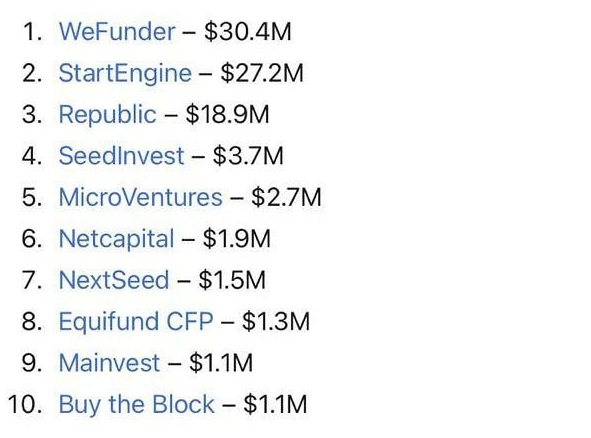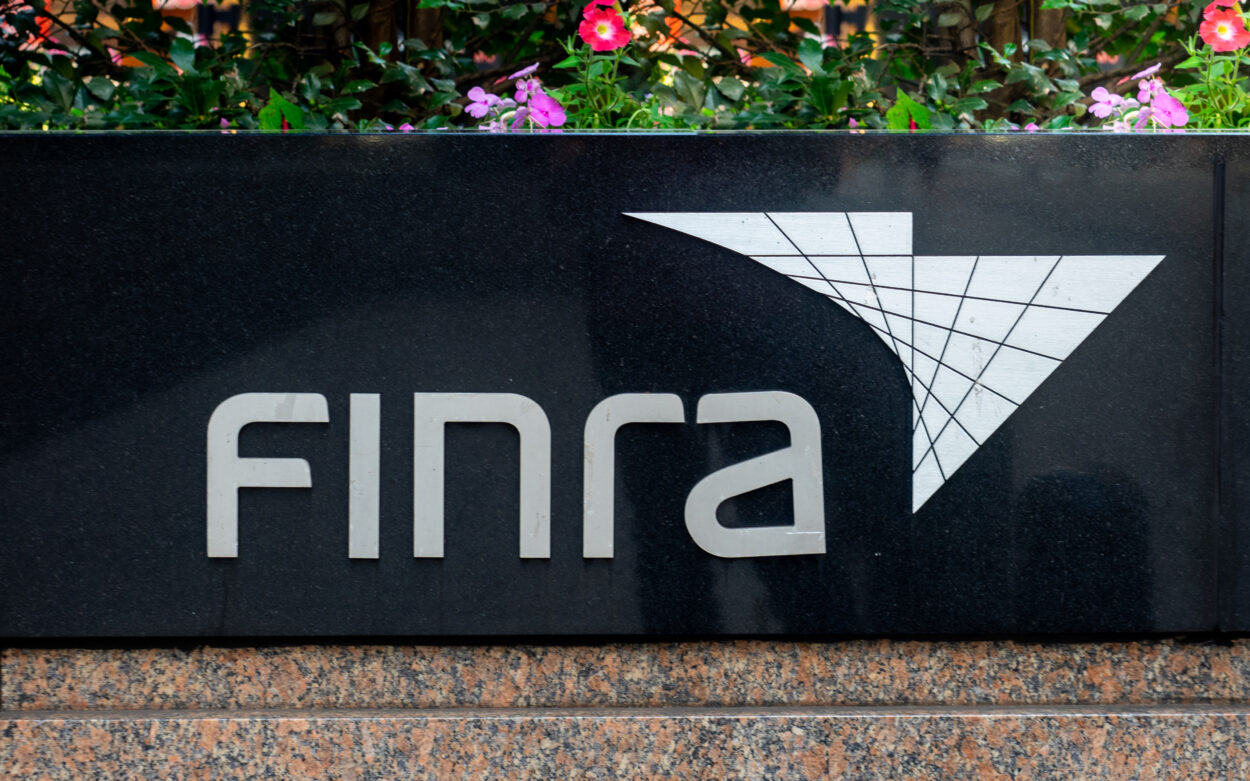
I have written a lot of articles about crowdfunding in general and specifically about crowdfunding to accredited investors under Regulation D. I have largely ignored the much smaller financings that are accomplished under Regulation Crowdfunding (Reg. CF) that accept investments from all comers. The time has come to fill that void.
REG CF
Reg. CF was the last of the regulations issued by the SEC under the JOBS Act. It embodied much of what proponents of the Act had wanted….a sanctioned method for community funding for start-ups and small businesses.
The first Reg. CF offerings began in May 2016. Despite a few success stories, the Reg. CF marketplace has yet to mature. I do not see that coming at any time soon, despite the out-sized need for small business capital.
Reg. CF created a new class of financial intermediary called “portals” which are essentially websites where companies seeking investors are displayed. But the portals are more than just websites.
The SEC wanted this market to be regulated, in part to protect investors from fraudulent offerings and in part to provide the companies seeking capital with a way to interact with investors in a regulated environment. The SEC required the portals to register with FINRA, the stock brokerage industry’s regulator, and to adhere to FINRA’s regulations.
Until recently only about 50 portals had been registered with FINRA, a number that had been fairly static for a while. A small handful of the portals handle the bulk of the transactions. Some of the earlier portals have quietly gone out of business. The rest quietly grind out only a few offerings at a time.
Top Ten REG CF Portals Ranked By Capital Raised 2020

Reg. CF required that investors be given specified disclosures about each company. It set baselines for the presentation of financial information and set limits on how much any small investor could invest every year in these very risky ventures. A required filing gives the SEC specific information about each offering.
Reg. CF allows companies to raise no more than $1,070,000 in a single year. For reference, the average loan guaranteed by the SBA is closer to $600,000. The SBA guarantees about 40,000 loans per year and rejects a similar amount. There are many thousands of small companies that do not come up to SBA standards.
A great many companies would have their capital needs satisfied with much less than $1,000,000. These companies should be looking to Reg. CF portals but are not. The portals have not demonstrated that every listing will get funded which is what any company should want.
A very large percentage of the offerings that list on Reg. CF portals raise very little money. Still, a great many start-ups and small businesses ask for very little. Many of the offerings seek less than $100,000.
Many of those small offerings do not employ a specialized marketing company or even an organized crowdfunding advertising campaign. Too many of the campaigns rely solely upon the company’s existing social media contacts which are rarely enough to get the company funded.
Portals
Very, very few of the portals are wildly profitable, if at all, even though the compensation structure is patterned after the wildly profitable mainstream stock brokerage industry. Most portals charge close to 7% of the funds every company raises. The very best portals raise a total of less than $1 million every week. This against a backdrop of so many companies in need of capital.
Five new portals were registered this month and the scuttlebutt around the industry is that another dozen portals more or less are in various stages of the registration process. Many anticipate that the SEC will raise the limit to $5 million. That may or may not happen and it will have little import since most of the portals have no idea how to raise even $100,000.
Just in the last few months, I have spoken with several people planning new Reg. CF portals. With one exception, none of these new portal owners knew anything about selling securities which is the business of any portal. None seemed particularly interested or focused on helping the listing companies raise the funds that they seek, even though the portals get paid a percentage of the funds that are raised.
FINRA
FINRA has always been a fairly lax regulator. Notwithstanding, like many regulators, FINRA can get their teeth into you. They especially like to tangle with smaller firms that would rather settle than fight.

I expect FINRA to get more involved as it is aware that the investors themselves have little recourse. If an investor invests in a Reg. CF offering that is a total scam no lawyer is going to file a suit against the portal if the loss is only $500. Even a $1 million Reg. CF offering is likely too small for a class action.
FINRA has its own set of portal rules and an established set of standards and practices. FINRA views the portals as being in the business of selling securities to public customers and should be expected to act accordingly.
Several people in the crowdfunding industry have suggested to me that crowdfunding platforms and portals have no real liability if an offering they host uses fraudulent or deceptive means to attract investors. At least with portals, that is categorically not true.
FINRA’s Rules for Portals specifically forbids the portals from engaging in fraudulent conduct with the same language it prohibits the mainstream stock brokers. As the portals do not have trading desks, the only place the portals might engage in fraudulent conduct is regarding the offerings they host.
FINRA expects each of its Members to have some system in place to verify the information that the listing companies provide to the public investors. FINRA has warned its members to not accept the self-serving statements of the founders of these companies at face value. In many ways, this is the antithesis of the approach that many portals take, especially with start-ups.
I have said before: when a portal lists an offering for a pre-revenue company, with negative or minimal book value, and allows the company to claim a “valuation” of tens of millions of dollars it is a fraud. What some VC might think or say about the company is not regulated in the same way as a firm registered with FINRA. The lawyers who allow the portals they represent to make a misrepresentation as to the “value” of a company are not doing anyone any favors.
There are very few lawyers who work with Reg. CF portals. Every one of the lawyers that I have met or spoken with was a very competent professional. But not all of them could really see Reg. CF offerings from the investor’s point of view which FINRA is likely to adopt as its own.
I recently spoke with an attorney who represents one Reg. CF portal and who is in the process of helping a client set up another. His new client writes a blog with a lot of followers. The blog features articles about specific start-ups. His client frequently appears on podcasts that get a significant amount of viewers. The client hopes to leverage his notoriety to help the companies that list their offerings on his new portal.
Rules Are Rules
FINRA expects portal owners to follow its rules regarding communications with the public. When you are selling securities much of what you can and cannot say is regulated. There is also a list of things that you must say when talking about an offering where you expect to collect a fee if the offering is successful.

FINRA has already expelled one portal owner for what he said about an offering in an interview away from his portal. There will be others.
I asked the attorney if the portal he was working on had an in-house compliance officer with experience to check all the scripts and the advertising copy for compliance before it is released. He told me that his client had not even thought about it.
That is the nub of the problem. Only one of the new portal owners with whom I spoke had a clear idea of how they would find companies to fund or how to make certain that there were always more investors available than securities to sell. And that is really crucial to the success of this business.
Adding 20 new portals to a market where most of the portals are not profitable is likely to result in a race to the bottom rather than the top. Adding more portals whose operators lack essential experience and trained compliance officers is not going to get more small businesses funded correctly.
Ideally, there would already be 50 portals each supplying $1 million per week or more for start-ups and small businesses. Another 20 would be welcome, especially now when the need for small business capital is great.
With Reg. CF the SEC offered a truly new and relatively simple method of corporate finance for small business. FINRA offers a roadmap to compliance and respectability. The road to success will come when the portal owners start acting like they are in the business of selling securities and focus on doing exactly that. Sadly, I do not see that happening any time soon.
If there are any portal owners out there who are ready to give up because they cannot run their portal profitably, I have some clients who would be interested in acquiring your registration to help you to salvage something from your efforts. Serious inquiries only.
If you’d like to discuss this or anything related, then please contact me directly HERE
Or you can book a time to talk with me HERE